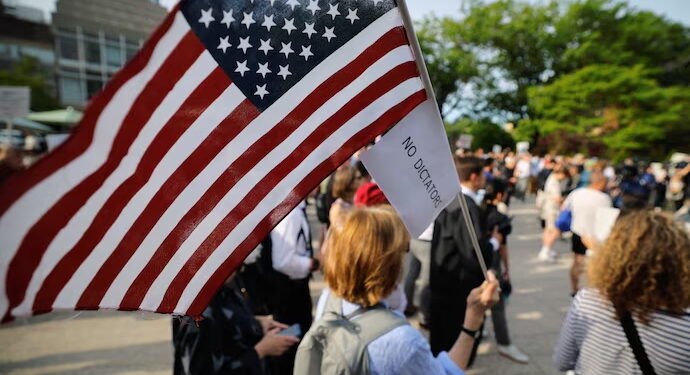Lagatar24 Desk
Washington: In a move that could significantly impact the international student community, the United States is set to implement mandatory social media vetting for all foreign students seeking to study in American institutions. The development comes as part of a broader State Department initiative, directed by the Trump administration, to tighten visa scrutiny in light of recent campus protests and national security concerns.
What is social media vetting?
Social media vetting refers to the examination of a visa applicant’s online presence—including posts, images, affiliations, and interactions on platforms like X (formerly Twitter), Instagram, and Facebook. The goal is to assess whether an applicant poses any security risk or violates stated US policies, particularly in relation to terrorism and antisemitism.
Although not entirely new, this directive signals a more aggressive and systematic approach. The Trump administration had previously introduced limited vetting, mostly targeting returning students. This new guidance, however, extends to all student and exchange visitor visa categories (F, M, J) and is expected to delay processing times and complicate approval.
Uncertainty and potential bias
The specifics of what constitutes red flags remain unclear. The internal cable, accessed by Reuters, does not list examples. Still, concerns have been raised over whether posts supporting Palestine or other political expressions could trigger extra scrutiny. This uncertainty adds to the anxiety for students coming from politically volatile regions.
Recent high-profile cases have added fuel to this worry. In March, a Brown University professor was deported after authorities discovered images of Iran’s Supreme Leader and Hezbollah’s funeral on her phone, suggesting that digital content is already playing a central role in vetting decisions.
Visa delays and economic strain
The State Department has also paused the scheduling of new student visa interviews, advising US embassies and consulates to hold off on fresh appointments until updated vetting protocols are issued. Existing appointments will proceed under current guidelines, but any unscheduled or open slots are being withdrawn.
This sudden disruption may not only jeopardize plans for prospective students but also impose financial strain on US universities. International students contribute billions annually to the US education economy, and any dip in enrollment—especially from countries like India, China, and the Middle East—could have lasting consequences.
Wider implications
While the stated aim is national security, many see this as part of a larger pattern of hostility toward international students. Just last week, the Trump administration sought student records from Harvard University, following anti-Israel campus protests.
If implemented broadly and rigidly, social media vetting could become a significant deterrent for aspiring students. It also raises critical questions about privacy, freedom of expression, and potential profiling based on nationality or political beliefs.







